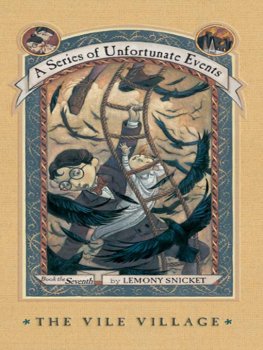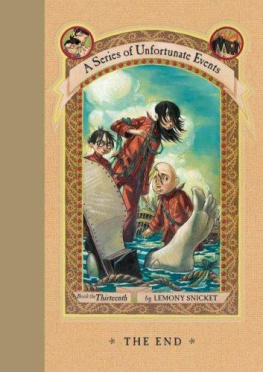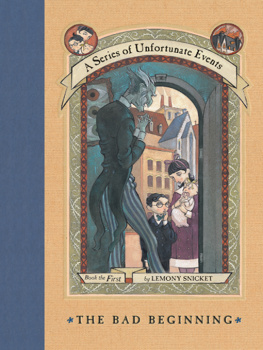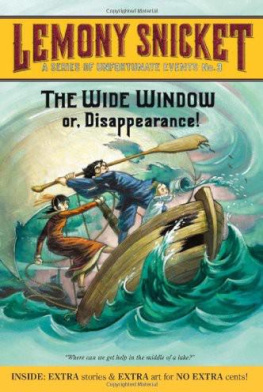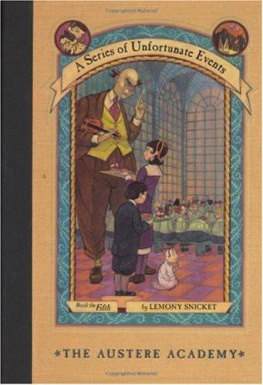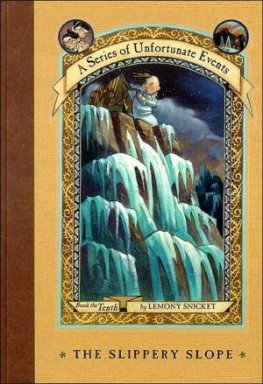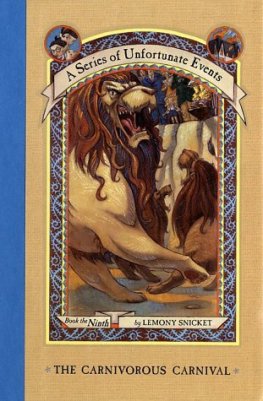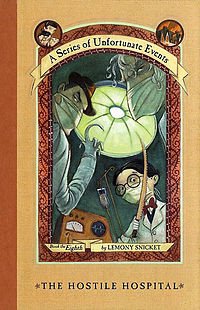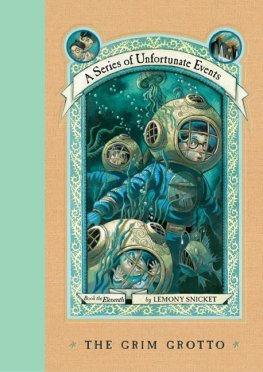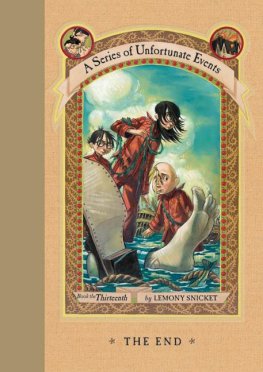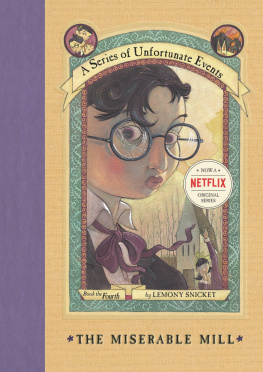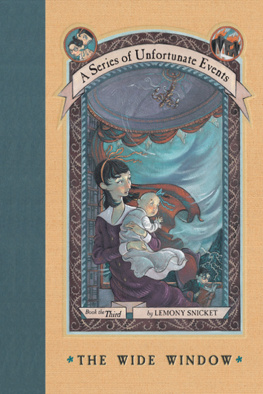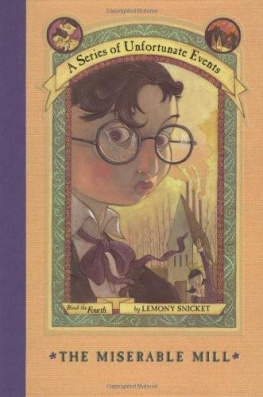Lemony Snicket - The Vile Village
Here you can read online Lemony Snicket - The Vile Village full text of the book (entire story) in english for free. Download pdf and epub, get meaning, cover and reviews about this ebook. year: 2001, genre: Adventure. Description of the work, (preface) as well as reviews are available. Best literature library LitArk.com created for fans of good reading and offers a wide selection of genres:
Romance novel
Science fiction
Adventure
Detective
Science
History
Home and family
Prose
Art
Politics
Computer
Non-fiction
Religion
Business
Children
Humor
Choose a favorite category and find really read worthwhile books. Enjoy immersion in the world of imagination, feel the emotions of the characters or learn something new for yourself, make an fascinating discovery.
- Book:The Vile Village
- Author:
- Genre:
- Year:2001
- Rating:4 / 5
- Favourites:Add to favourites
- Your mark:
- 80
- 1
- 2
- 3
- 4
- 5
The Vile Village: summary, description and annotation
We offer to read an annotation, description, summary or preface (depends on what the author of the book "The Vile Village" wrote himself). If you haven't found the necessary information about the book — write in the comments, we will try to find it.
The Vile Village — read online for free the complete book (whole text) full work
Below is the text of the book, divided by pages. System saving the place of the last page read, allows you to conveniently read the book "The Vile Village" online for free, without having to search again every time where you left off. Put a bookmark, and you can go to the page where you finished reading at any time.
Font size:
Interval:
Bookmark:
Chapter One
No matter who you are, no matter where you live, and no matter how many people are chasing you, what you don't read is often as important as what you do read. For instance, if you are walking in the mountains, and you don't read the sign that says "Beware of Cliff" because you are busy reading a joke book instead, you may suddenly find yourself walking on air rather than on a sturdy bed of rocks. If you are baking a pie for your friends, and you read an article entitled "How to Build a Chair" instead of a cookbook, your pie will probably end up tasting like wood and nails instead of like crust and fruity filling. And if you insist on reading this book instead of something more cheerful, you will most certainly find yourself moaning in despair instead of wriggling in delight, so if you have any sense at all you will put this book down and pick up another one. I know of a book, for instance, called The Littlest Elf, which tells the story of a teensy-weensy little man who scurries around Fairyland having all sorts of adorable adventures, and you can see at once that you should probably read The Littlest Elf and wriggle over the lovely things that happened to this imaginary creature in a made-up place, instead of reading this book and moaning over the terrible things that happened to the three Baudelaire orphans in the village where I am now typing these very words. The misery, woe, and treachery contained in the pages of this book are so dreadful that it is important that you don't read any more of it than you already have. The Baudelaire orphans, at the time this story begins, were certainly wishing that they weren't reading the newspaper that was in front of their eyes. A newspaper, as I'm sure you know, is a collection of supposedly true stories written down by writers who either saw them happen or talked to people who did. These writers are called journalists, and like telephone operators, butchers, ballerinas, and people who clean up after horses, journalists can sometimes make mistakes. This was certainly the case with the front page of the morning edition of The Daily Punctilio, which the Baudelaire children were reading in the office of Mr. Poe. "twins captured by count omar," the headline read, and the three siblings looked at one another in amazement over the mistakes that The Daily Punctilio's journalists had made.
"'Duncan and Isadora Quagmire,'" Violet read out loud, "'twin children who are the only known surviving members of the Quagmire family, have been kidnapped by the notorious Count Omar. Omar is wanted by the police for a variety of dreadful crimes, and is easily recognized by his one long eyebrow, and the tattoo of an eye on his left ankle. Omar has also kidnapped Esm Squalor, the city's sixth most important financial advisor, for reasons unknown.' Ugh!" The word "Ugh!" was not in the newspaper, of course, but was something Violet uttered herself as a way of saying she was too disgusted to read any further. "If I invented something as sloppily as this newspaper writes its stories," she said, "it would fall apart immediately." Violet, who at fourteen was the eldest Baudelaire child, was an excellent inventor, and spent a great deal of time with her hair tied up in a ribbon to keep it out of her eyes as she thought of new mechanical devices.
"And if I read books as sloppily," Klaus said, "I wouldn't remember one single fact." Klaus, the middle Baudelaire, had read more books than just about anyone his own age, which was almost thirteen. At many crucial moments, his sisters had relied on him to remember a helpful fact from a book he had read years before.
"Krechin!" Sunny said. Sunny, the youngest Baudelaire, was a baby scarcely larger than a watermelon. Like many infants, Sunny often said words that were difficult to understand, like "Krechin!" which meant something along the lines of "And if I used my four big teeth to bite something as sloppily, I wouldn't even leave one toothmark!"
Violet moved the paper closer to one of the reading lamps Mr. Poe had in his office, and began to count the errors that had appeared in the few sentences she had read. "For one thing," she said, "the Quagmires aren't twins. They're triplets. The fact that their brother perished in the fire that killed their parents doesn't change their birth identity."
"Of course it doesn't," Klaus agreed. "And they were kidnapped by Count Olaf, not Omar. It's difficult enough that Olaf is always in disguise, but now the newspaper has disguised his name, too."
"Esm!" Sunny added, and her siblings nodded. The youngest Baudelaire was talking about the part of the article that mentioned Esm Squalor. Esm and her husband, Jerome, had recently been the Baudelaires' guardians, and the children had seen with their own eyes that Esm had not been kidnapped by Count Olaf. Esm had secretly helped Olaf with his evil scheme, and had escaped with him at the last minute.
"And 'for reasons unknown' is the biggest mistake of all," Violet said glumly. "The reasons aren't unknown. We know them. We know the reasons Esm, Count Olaf, and all of Olaf's associates have done so many terrible things. It's because they're terrible people." Violet put down The Daily Punctilio, looked around Mr. Poe's office, and joined her siblings in a sad, deep sigh. The Baudelaire orphans were sighing not only for the things they had read, but for the things they hadn't read. The article had not mentioned that both the Quagmires and the Baudelaires had lost their parents in terrible fires, and that both sets of parents had left enormous fortunes behind, and that Count Olaf had cooked up all of his evil plans just to get ahold of these fortunes for himself. The newspaper had failed to note that the Quagmire triplets had been kidnapped while trying to help the Baudelaires escape from Count Olaf's clutches, and that the Baudelaires had almost managed to rescue the Quagmires, only to find them snatched away once more. The journalists who wrote the story had not included the fact that Duncan Quagmire, who was a journalist himself, and Isadora Quagmire, who was a poet, each kept a notebook with them wherever they went, and that in their notebooks they had written down a terrible secret they had discovered about Count Olaf, but that all the Baudelaire orphans knew of this secret were the initials V.F.D., and that Violet, Klaus, and Sunny were always thinking of these three letters and what ghastly thing they could stand for. But most of all, the Baudelaire orphans had read no word about the fact that the Quagmire triplets were good friends of theirs, and that the three siblings were very worried about the Quagmires, and that every night when they tried to go to sleep, their heads were filled with terrible images of what could be happening to their friends, who were practically the only happy thing in the Baudelaires' lives since they received the news of the fire that killed their parents and began the series of unfortunate events that seemed to follow them wherever they went. The article in The Daily Punctilio probably did not mention these details because the journalist who wrote the story did not know about them, or did not think they were important, but the Baudelaires knew about them, and the three children sat together for a few moments and thought quietly about these very, very important details.
A fit of coughing, coming from the doorway of the office, brought them out of their thoughts, and the Baudelaires turned to see Mr. Poe coughing into a white handkerchief. Mr. Poe was a banker who had been placed in charge of the orphans' care after the fire, and I'm sorry to say that he was extremely prone to error, a phrase which here means "always had a cough, and had placed the three Baudelaire children in an assortment of dangerous positions." The first guardian Mr. Poe found for the youngsters was Count Olaf himself, and the most recent guardian he had found for them was Esm Squalor, and in between he had placed the children in a variety of circumstances that turned out to be just as unpleasant. This morning they were supposed to learn about their new home, but so far all Mr. Poe had done was have several coughing fits and leave them alone with a poorly written newspaper.
Font size:
Interval:
Bookmark:
Similar books «The Vile Village»
Look at similar books to The Vile Village. We have selected literature similar in name and meaning in the hope of providing readers with more options to find new, interesting, not yet read works.
Discussion, reviews of the book The Vile Village and just readers' own opinions. Leave your comments, write what you think about the work, its meaning or the main characters. Specify what exactly you liked and what you didn't like, and why you think so.

